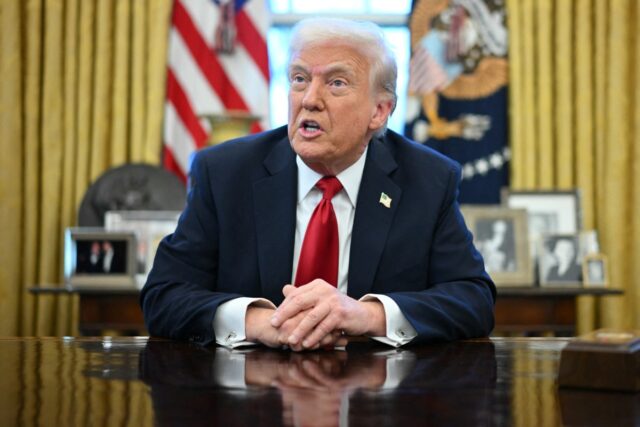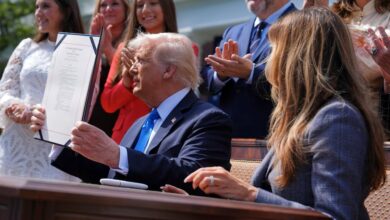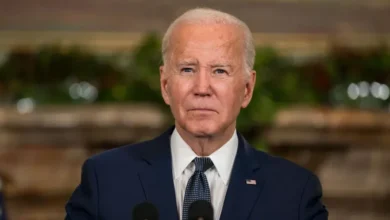
Under the leadership of Donald Trump as president of the United States the country adopts an oppositional position towards the BRICS economic alliance. The organizations BRICS and BRICS+ consist of the nations Brazil, Russia, India, China, South Africa and a total of 10 members including Egypt, Ethiopia, Iran and the United Arab Emirates (UAE) and Indonesia.
TRump has issued multiple warnings about applying 100 or 150 percent tariffs on the members of the BRICS economic alliance during their efforts to compete with the U.S. dominance in international trade and finance systems. Answering a question about the BRICS nations creating their own currency Trump declared to impose minimum 100% tariff duties on all transactions which manage to slide past his scrutiny. The tariff threats originated from Trump in December 2024 before he repeated them during his first month in office January 2025.
Trump declared on his Truth Social platform that countries opposed to the US dollar need to agree to two conditions or face total import taxes at 100 percent. According to Trump there is zero possibility for the BRICS nations to replace the U.S. dollar as an international trade currency and anyone trying to implement such changes would face both tariffs and removal of American trade.
The United States confronts BRICS by conducting hard economic methods together with hostile diplomatic statements which target both currency independence initiatives and regional power expansion.
The largest economy of Africa together with most people living there establishes Nigeria as a country actively working with BRICS nations. Although Nigeria maintains a non-membership status within the bloc it now collaborates with 12 other partner countries as part of its increasing relationship with the BRICS nations. Through this partnership Nigeria anticipates that it will gain access to Foreign Direct Investment (FDI) along with economic collaboration possibilities.
Read Also: LagRide threatens to go on strike over arrest threat
Reports indicate that Nigeria received $1.27 billion from foreign investors in 2024 and becoming a BRICS partner country will help deepen existing economic relations to build infrastructure and power networks as well as industrial capabilities. Despite its abundant natural resources Nigeria seeks to enlarge its trade partnerships into regions which do not include its conventional Western alliances. Through its BRICS membership Nigeria can establish trading relationships with emerging economies to explore potential opportunities in the sectors of oil and gas as well as agriculture and technology.
Nigeria’s Foreign Minister Yusuf Tuggar emphasizes that the country should exploit its economic size and population to enhance trading relationships with the BRICS nations. BRICS serves the Nigerian government as an international platform to increase global influence. As a top economy behind only Egypt and South Africa in Africa Nigeria could gain even more global power if it becomes a BRICS member in full. The community’s initiative to build a new world system matches well with Nigeria’s diplomatic aims to diminish its economic dependence on Western nations.
Through BRICS the members operate their own New Development Bank (NDB) that provides financial support for infrastructure development and sustainable projects throughout its member states and partners. The resources from BRICS would support Nigeria to handle its infrastructure gaps while achieving its national economic objectives. Nigeria holds partner membership in the BRICS group at this time yet the government aims to achieve full membership within two years.
Complete membership in the bloc will enable Nigeria to participate more substantially in the formation of major bloc policies and initiatives. The economic advantages and human resources base would give Nigeria power to take its place among diplomatic negotiators. The warning signals are increasing regarding Nigeria’s potential challenges in joining the BRICS due to its Western alliances and homegrown economic and political complications.
Read Also
- 2027 Elections: I’m expecting more defections to APC – Tinubu
- President Trump bars Harvard from admitting international students
- Bitcoin surges to all time peak
- What the Immigration White Paper Means for Workers and Students in the UK
- JAMB reviews 379,000 UTME resit results
The member nations of BRICS have defiantly pursued their intended goal of creating an alternative trade currency despite U.S. dollar threats by Trump. A new monetary system for international commerce is being developed by discussions that seek to reduce global dependence on the U.S. dollar because of the dollar sanctions against Russia and other states. In a solid declaration Brazil’s president Lula da Silva expressed that ‘’BRICS is committed to ending U.S. dollar dominance no matter what’’ after multiple warnings from Trump.
The Trump administration implemented sanctions as a strategy to protect U.S. dominance while this pattern demonstrates no signs of changing. The economic sanctions against Russia have led BRICS to search for substitute currencies that replace the U.S. dollar. The aggressive stance of US sanctions against BRICS nations unintentionally propels these major economies toward implementation of de-dollarization plans.
Trump engages in economic pressure against BRICS nations to minimize their collective power whichragments their ability to confront US financial supremacy in Western currency markets. At the same time he issues threats of economic sanctions against aspiring BRICS members to prevent their support for the bloc.
The member nations are advancing their coordination through increased de-dollarization initiatives. The financial system’s future will experience crucial consequences as a result of this current confrontation.




